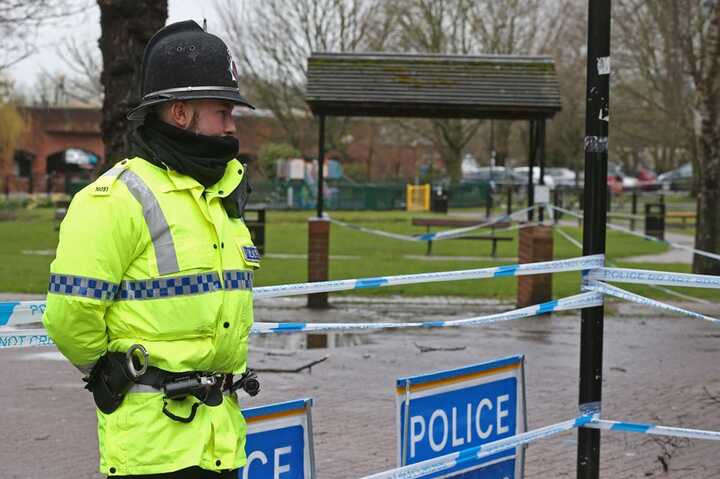
Inspector dismissed emergency services’ concerns that incident was similar to Skripal poisonings, KC says
Police officers urged paramedics and firefighters to treat the second novichok incident in 2018 as a drug overdose despite warnings from the ambulance and fire services that it had similarities to the first poisoning four months earlier in Salisbury, a public inquiry has heard.
The UK government believes the novichok was brought into Britain by agents tasked by Vladimir Putin to target the former spy Sergei Skripal, who had been settled in Salisbury after a spy exchange, the inquiry heard earlier this week. Skripal and his daughter, Yulia, were poisoned on 4 March 2018 and both survived.
On 30 June 2018, Dawn Sturgess, 44, and her boyfriend, Charlie Rowley, fell ill at his home in Amesbury, seven miles (11km) north of Salisbury, after becoming contaminated with novichok, which had been secreted in a fake perfume bottle. Sturgess died, while Rowley survived.
The inquiry heard that Rowley had a number of convictions for possession of class A and class C drugs and, as a result, a Wiltshire police inspector concluded his symptoms were most likely drug-related – a judgment that led to Wiltshire police officers entering Rowley’s contaminated flat.
Andrew O’Connor KC, counsel to the inquiry, told the hearing that on the 30 June 2018, after emergency services arrived at Rowley’s home, a series of calls were made to the police communications centre by the ambulance service and fire brigade.
O’Connor said: “The ambulance service, this time, made further contact with the communications centre [and] stated that the patients were presenting with similar symptoms to the Salisbury incident.
“So, for the first time, I think, raising a concern about novichok expressly. So, the fire service were now in attendance and were treating the incident as if there was a suspicious substance at the location.”
The ambulance service spoke to an inspector with the Wiltshire police, O’Connor said. “Based on the intelligence, [he] formed the opinion that this incident was most likely owing to drugs,” O’Connor told the inquiry. “He noted the apparent nervousness of the other emergency services, but remained of the opinion that this was drug-related and was to be treated as such.”
O’Connor added that the inspector was not following protocol for joint working between emergency services, emphasising that he was making this judgment away from the site of the incident.
“What I suggest is that really [he] simply seems to have countermanded the concerns of the ambulance service and the fire brigade,” O’Connor said. “He simply formed a view having read some intelligence reports, and didn’t engage or discuss or really make any attempt jointly to understand the situation with the other services involved.”
O’Connor said that, as a result, Wiltshire police officers risked their lives by entering Rowley’s contaminated flat.
“And, as we know, that was a flat which not only contained a bottle of novichok inside, but had been contaminated in various areas by novichok. And so, in fact, what took place was something just as dangerous, if not more dangerous than the search of [the Skripals’ address] four months earlier.”
Wiltshire police’s deputy chief constable, Paul Mills, told the inquiry: “The police officers were overly confident. I don’t believe it was wrong for them to have a hypothesis, based on the recent intelligence that they were aware of through the lens of the police service in Wiltshire, that this potentially could have been a drugs-related incident.”
It was also revealed to the inquiry that Skripal’s life may have been saved because he was mistakenly given atropine, a drug used for organophosphate poisoning.
Wayne Darch, the deputy director of operations at the South Western ambulance service NHS foundation trust, told the inquiry that paramedics at the scene had misdiagnosed Skripal and his daughter Yulia’s symptoms as an opiate overdose.
O’Connor said: “Atropine was in fact administered to Sergei Skripal by one of the ambulance staff present by accident. He intended to give the administration of naloxone but picked up the wrong bottle and in fact gave him atropine.
“We will hear from Mr Faulkner, the expert, that that would have clearly helped Mr Skripal and may have even saved his life.
“It is also fair to say that Mr Faulkner is not critical that the ambulance staff on that occasion did not diagnose organophosphate poisoning, but instead diagnosed opiate poisoning, because [organophosphate poisoning] is very rare and there is an overlap of symptoms.”
The inquiry continues.
Read more similar news:
Comments:
comments powered by Disqus

































